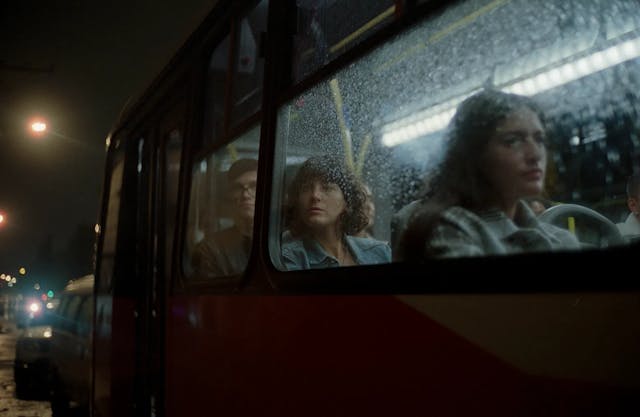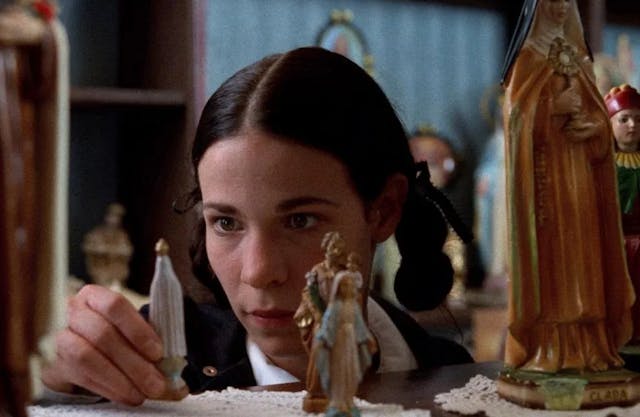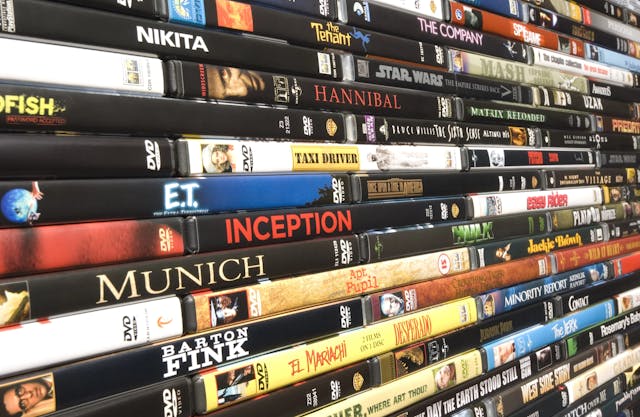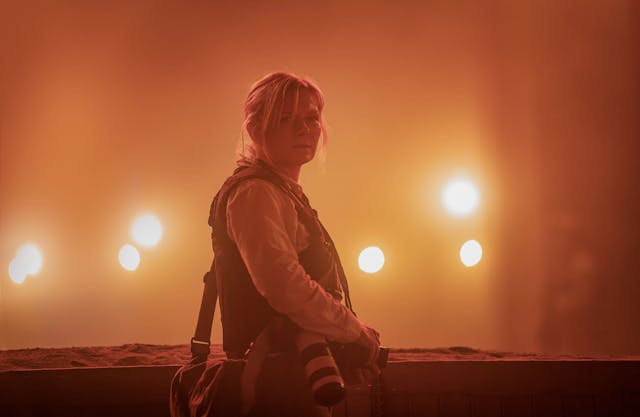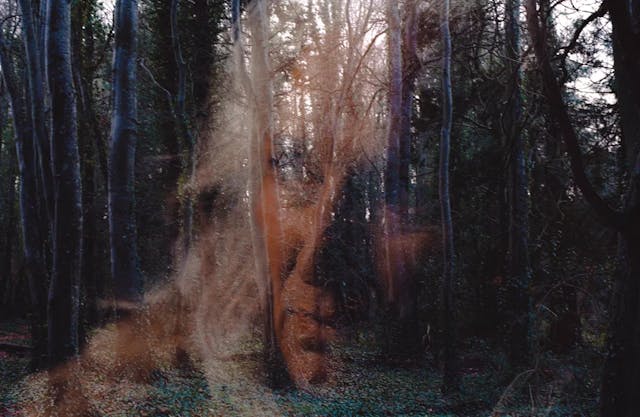
Movies begin with words: learn how the pros do it. / Photo by Fabio Pagani©, courtesy of Dreamstime.com
We know the feeling. You wish to be a filmmaker but don't know where to start. You have no connections, money, or idea of how to begin. It's frustrating enough to make you want to nap or watch somebody else's movie. And if the movie sucks, you'll start to think you can do better and spiral again in a pit of frustration.
We come bearing good news. It's not hard to get the ball rolling. And it's cheap, too. You only need your favorite writing instruments: pen, paper, or whatever. If you don't do analog anymore - I don't know you, but we like the tactility of writing by hand - use your computer. You already have one, right? But I digress…every film project begins with an idea. That idea blooms into a story. That story takes the form of a screenplay. And once you have a screenplay, it will be easier to film something!
Here are six tips to help you get the ball rolling with small efforts. Who knows, you might end up as a professional filmmaker!
Don't throw away seeds of inspiration.
Every waking hour - heck, every second - our mind is racing. You might imagine something that leads to a full-fledged story among the storm of ideas. The thing is, we trust our memory too much. Time passes. Life gets in the way. When you want to work on that glimmer of an idea, you forget what it was or what attracted you in the first place. There is one way to preserve them: write them down. It can be a few words or a couple of sentences. Carry around a small notebook and a pen, and write it down. Alright, use your phone if necessary. We won't judge you.
You may apply the same principle to dreams, but if you follow Alfred Hitchcock's advice, it might be for naught. The Master of Suspense told an anecdote about having a great idea for a movie while dreaming. He would wake up the next day having forgotten it. One night, he left a pen and paper on his nightstand and managed to scratch a few words before falling asleep again. The following day, he cravenly took the sheet and read "boy meets girl."

Rude awakening: Hitchcock learned you can't trust your dreams. / Photo courtesy of Creative Commons.
Look around you and catch an idea.
People on the streets and objects around you awaken your curiosity. Maybe it's the expression on the face of the barista who hands you an overpriced cup of coffee. You saw a clown car in a traffic accident on the way to work. A couple in an elevator stops talking when you walk in, but their body language keeps speaking volumes about strife. Maybe it's something as undramatic as how a ray of sunshine hits a window. Stop to think about what caught your interest about these people, events, or places and why. Who are these people? What are they looking for? What will happen to them?
Think of this as a creative exercise. Maybe you will see a story in the newspaper that works as a prompt for you. Check out how filmmaker Lorenzo Vigas started working on Venezuelan Oscar candidate "The Box."
This real-life news story refers to survivors from the Spanish Civil War, looking for the remains of their loved ones killed by the forces of dictator Francisco Franco. Pedro Almodóvar explores the effects of this particular historical trauma in "Parallel Mothers" (2022). Lorenzo Vigas is not adapting the newspaper article. He is not telling the story of the survivors dealing with their relatives' deaths. It just inspires him to explore a theme in a radically different setting. "The Box" follows a Mexican teen who travels to the North of his country to retrieve the remains of the father he barely knew and take them back to the city to bury them. On the way back, he sees a man that reminds him of his father. Or maybe he is his father. He drops the box and sticks to the guy who takes a shine to him and brings him into his criminal operation, trafficking illegal workers for cartel-like sweatshops.

Father Figure: Hatzín Mendoza and Mario Enderle in Lorenzo Vigas' "The Box" / Photo courtesy of Cinema Tropical.
Extrapolate from Personal Experience.
Sometimes, you don't need to look outside but inwards. Contemplate what's happening in your life, and use your imagination to work that conflict into a narrative. It does not have to be true to your life at all. Check out Colombian filmmaker Natalia Santa's inspiration for her feature film debut "Malta." The movie follows Mariana (Estefanía Piñeres), a young woman trapped in a dead-end job and uninspiring college studies. She dreams of escaping to the island of Malta as she spends her nights engaging in meaningless sex with strangers. Nothing further from Santa's life than Mariana. She is a successful TV and film screenwriter and director, currently working in the writers' room of Netflix's eagerly-awaited series based on Gabriel Garcia Márquez's "A Hundred Years of Solitude."
Santa's situation led her to an entirely fictional story that finds something universal that can resonate with every viewer worldwide.

Waiting for somebody: Estefanía Piñeres and Emmanuel Restrepo in Natalia Santa's "Malta." / Photo courtesy of Cinema Tropical.
Learn about writing formulas.
"Formula" is usually a bad word in critical circles. It speaks of a lack of imagination and predictability. Just look at Marvel, micromanaging its projects to ensure action set pieces and expositionary character-building scenes follow well-worn beats. On the other hand, formulas work. Marvel may be hitting a creative dead end, but for almost two decades, it was wildly successful.
Dogeared screenwriting manuals fill shelves of second-hand bookstores, but none is more popular than Robert McKee's. His book, "Story," was born from a 3-day seminar he gave in the early eights at the University of Southern California.
If memory serves me well - I read it many moons ago - he champions the three-act structure and some variables, always emphasizing conflict and resolution. I'm unsure what he would make of Tarkovsky, but he proved influential in the industry. Besides the popularity of his books and seminars, he became a pop culture figure, canonized by Charlie Kaufman as a character in his screenplay for the movie "Adaptation" (Spike Jonze, 2002), which simultaneously satirizes and abides by his schematic approach to screenwriting.
The dark meta-comedy reaches its apex when the protagonist, a beleaguered and blocked writer named "Charlie Kaufman" (Nicolas Cage), enters a McKee seminar looking for inspiration. Or a foe. Or both things. Brian Cox plays McKee as a virtual preview of Logan Roy, sixteen years before "Succession." If you loved the HBO series, you have to watch him in "Adaptation." Check out the profanity-laden tirade he lets go on Kaufmann when he dares to question life as a source of inspiration.
You can love or hate McKee's vision, but his books can work as a primer in how Hollywood's mainstream cinema works. You can follow the formula to a T or work against it.
Use something you love as a starting point.
Not every one of us has the kind of imagination geared towards building a world from scratch. Or perhaps you don't want to. Don't panic. You can also write a movie adapting somebody else's work. It's easier to translate something you love: a novel that moves you, a theater play that inspires you, a short story you cherish. Check out the experience of Nancy Savoca. The New York-based filmmaker was still in college when she contacted author Francine Prose to profess her wish to turn her novel "Household Saints" into a movie.
It's great if you can secure the rights to adapt a work before spending time and energy on a script. If not, the project will not go beyond the page. Still, such an exercise is not unheard of. In the TV industry, newbies hone their skills by writing "spec scripts" like episodes of the series they love.

Italoamerican Miracles: Tracy Ullman and Vincent D'Onofrio in Nancy Savoca's "Household Saints," based on the novel by Francine Prose. / Photo courtesy of Kino Lorber.
Play around with screenwriting software.
Final Draft's specialized word processing software is Hollywood's virtual standard for professional screenwriters. It's a dedicated application that lets you write according to the industry standard for screenwriting format. A license for personal use costs $199.00, but you can try it out for a short trial time without spending a penny. There are cheaper options. Fade In Pro, favored by Ryan Johnson (Glass Onion), will set you back $79.00. If money is an issue, there are freeware like Celtx and Trelby.

Fit for Hollywood: if Fade In Pro is good enough for Rian Johnson to write "Glass Onion," it's good enough for you. / Photo by Starstock©, courtesy of Dreamstime.
Kill two birds with one stone by downloading one of them and start playing around with them. You will learn how to use it, and maybe you'll surprise yourself by producing an idea to develop further.
Carve out some "Me Time" to write.
Stop waiting for the muse to manifest. Every professional writer will tell you work is the mother of creativity. Watch your schedule and try to carve out some time to sit down and write. If we are lucky, we all have paying jobs to tend to, so you'll have to sacrifice some leisure time. Make it constant. Perhaps you will wake up one hour earlier every weekday or dedicate every Sunday morning. The trick is to sit down and write. This is when you flesh out those ideas you jotted down in a notebook or when you dig inside your head for inspiration. Start writing whatever comes to mind. It doesn't have to be formatted or complete in itself. Do an outline, a synopsis, lines of dialogue, whatever comes to mind. In the worst-case scenario, you train yourself and acquire discipline.
Start small
In the mischievous documentary "The Five Obstructions" (2003), director Lars von Trier poses a daunting challenge to fellow filmmaker Jørgen Leth: He will provide him with the resources to remake his 13-minute short "The Perfect Human" (1968) five times, each time with increasing degrees of difficulty. Shoot in Cuba! Make it animated! and so on.
You can be your own von Trier and challenge yourself: write a short screenplay with just two characters in one location in a single day. Think of it as a creative exercise. Who knows? Maybe it will inspire you enough to shoot it and end up with your first movie.
But we are getting ahead of ourselves. It's nice to have your head filled with plans. However, they will never become a reality if they don't leave your head and venture into the real world. Once you write them down, they exist outside yourself, and they will draw you along for the ride of a lifetime.
Watch “Lonely”
“Lonely” is a powerful reminder that no one is ever truly alone, and there is always someone out there who cares and wants to help.
Stream NowWant to get an email when we publish new content?
Subscribe today



